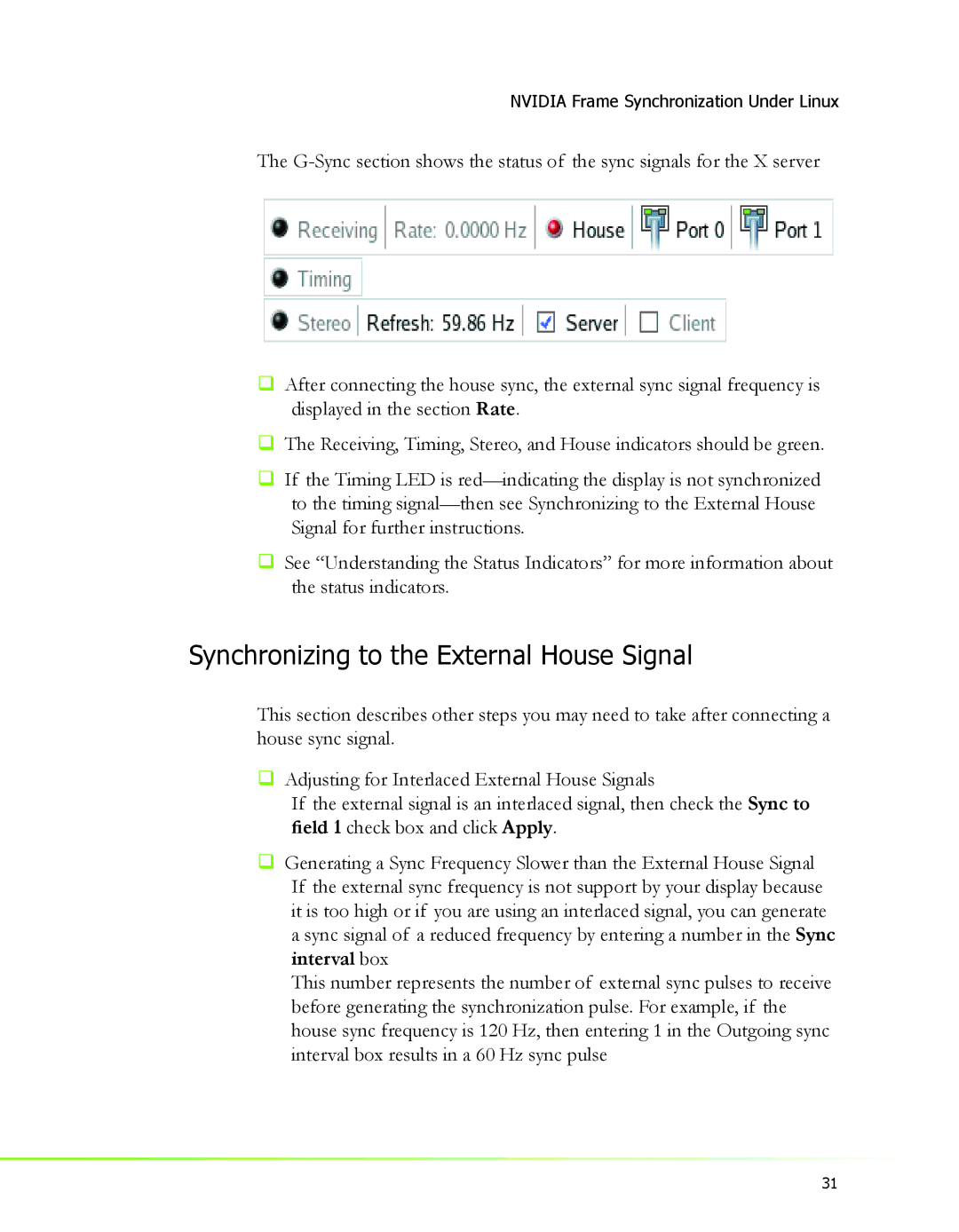
NVIDIA Frame Synchronization Under Linux
The
After connecting the house sync, the external sync signal frequency is displayed in the section Rate.
The Receiving, Timing, Stereo, and House indicators should be green.
If the Timing LED is
See “Understanding the Status Indicators” for more information about the status indicators.
Synchronizing to the External House Signal
This section describes other steps you may need to take after connecting a house sync signal.
Adjusting for Interlaced External House Signals
If the external signal is an interlaced signal, then check the Sync to field 1 check box and click Apply.
Generating a Sync Frequency Slower than the External House Signal If the external sync frequency is not support by your display because it is too high or if you are using an interlaced signal, you can generate a sync signal of a reduced frequency by entering a number in the Sync interval box
This number represents the number of external sync pulses to receive before generating the synchronization pulse. For example, if the house sync frequency is 120 Hz, then entering 1 in the Outgoing sync interval box results in a 60 Hz sync pulse
31
